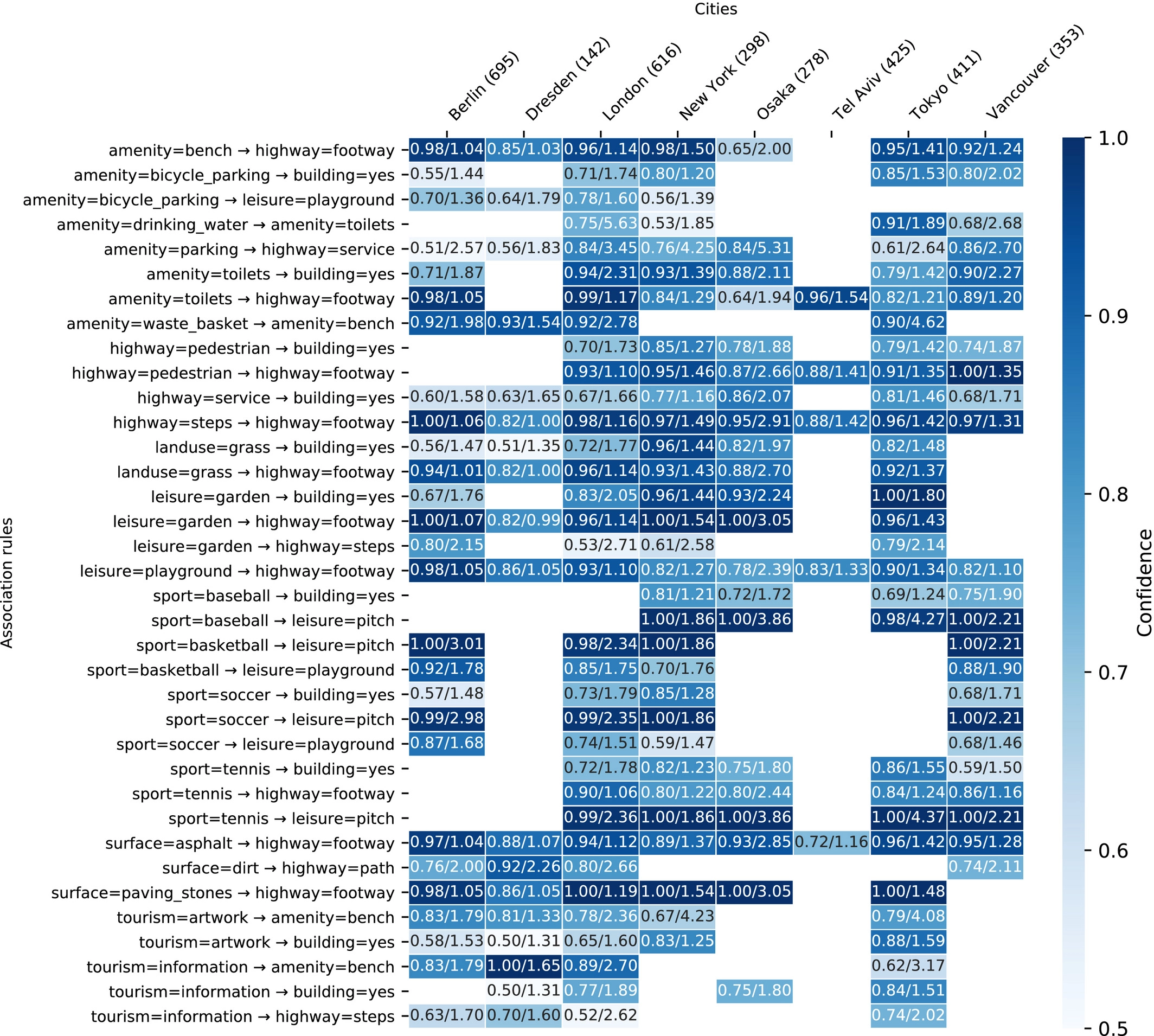As a user‐generated map of the whole world, OpenStreetMap (OSM) provides valuable information about the natural and built environment. However, the spatial heterogeneity of the data due to cultural differences and the spatially varying mapping process makes the extraction of reliable information difficult. A newly published study investigates the variability of association rules extracted from OSM across different geographic regions and depending on different context variables, such as the number of OSM mappers.
The focus of this study is the spatial co‐occurrence of OSM tags mapped inside of parks within eight different cities. Without considering any context variable, most association rules were very region‐specific without any rule being valid across all cities. Limiting the association rule analysis to parks based on specific context variables increased the number of rules which are applicable across multiple cities. Furthermore, additional region‐specific association rules emerged. Some association rules showed high confidence values across all cities, but elevated lift values for cities with a low level of completeness. Furthermore, a connection between the lift value of a rule and context variables related to mapping activity was found. The most important context variables were found to be the number of features mapped inside the park, the number of tags and the park size. These results suggest that the mapping process has a significant influence on the emergence of association rules within user‐generated data. Therefore, this subject needs further investigation to enable effective usage of OSM data across different cultural realms.

, , . Regional variations of context‐based association rules in OpenStreetMap. Transactions in GIS. 2020; 00: 1– 21. https://doi.org/10.1111/tgis.12694


